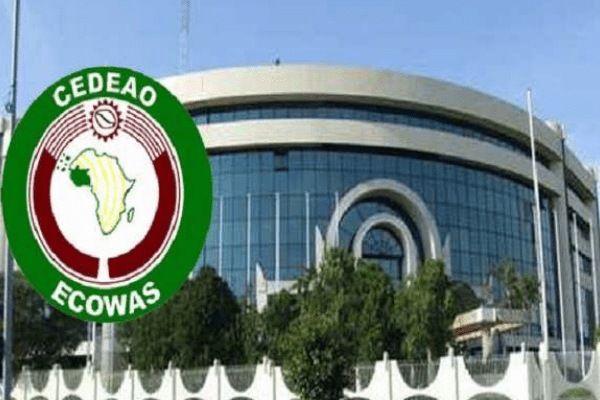ECOWAS moves to bridge gender gap in West African politics, targets 30% female representation
The Economic Community of West African States (ECOWAS) has intensified efforts to close the gender gap in political leadership across the subregion, with a fresh push to achieve at least 30 percent female representation in national parliaments and decision-making bodies.
Through the ECOWAS Female Parliamentarian Association (ECOFEPA), women lawmakers have launched a mentorship initiative to groom over 200 emerging young women leaders from West Africa and the Sahel, aimed at building their confidence, political skills, and readiness to participate in governance.
Themed “Strengthening Women’s Role in Political Parties and Parliaments in West Africa and the Sahel,” the session, held at the ECOWAS Parliament in Abuja, marked a major step in advancing gender equality and nurturing the next generation of women in governance across member states.
Veronica Sisay, President of the ECOWAS Female Parliamentary Association (ECOFEPA) and Chair of the Female Caucus in the ECOWAS Parliament, emphasised the importance of mentoring young women in political leadership as a deliberate strategy to sustain women’s growing influence in the region’s decision-making institutions.
“We want to catch them young. After we have left, they will take our steps. Politics is not a dirty game as many think, it is a platform to know your country, understand the issues facing women, and be part of shaping solutions”, Sisay said.
She noted that despite the long history of male dominance in West African politics, women are gradually breaking barriers within ECOWAS institutions.
For the first time in the 50-year history of the regional body and 25 years of its parliament, women now constitute 25 percent of ECOWAS parliamentary representation, up from a mere 2 to 5 percent in previous years.
According to her, ECOFEPA continues to advocate for 30 percent female representation across ECOWAS member states in line with international and regional commitments such as the Convention on the Elimination of All Forms of Discrimination Against Women (CEDAW), the Beijing Declaration and Platform for Action, and the African Union Protocol on the Rights of Women in Africa.
“We are not just asking for seats; we are asking for recognition of women as partners in development. Women are the best securities the world has ever known, we build peace, we nurture life, and we drive change”, she stated.
Sisay also recalled ECOFEPA’s historic campaign for the election of Memunatu Ibrahim of Togo as the first female Speaker of the ECOWAS Parliament, achieved in May 2024 after decades of male leadership.
“We lobbied, we campaigned, and we made history. Today, we have our first woman Speaker, and it shows what advocacy and unity among women can achieve,” she said.
Beyond parliament, the Sierra Leonean lawmaker disclosed that ECOFEPA is now pushing for the appointment of the first female President of the ECOWAS Commission, appealing to regional leaders to make it happen during the tenure of Sierra Leone’s President, Julius Maada Bio, who currently chairs the ECOWAS Authority of Heads of State and Government.
“Let history record that under his chairmanship, ECOWAS took a groundbreaking step by appointing its first female Commission President,” Sisay declared.
She further charged young women to aspire beyond political appointments, reminding them that their leadership should inspire others.
“It is not enough for women to enter parliament; they must open the doors wider for others. History remembers the bold, not the conformists”, she stated.
Expanding on the mentorship framework, Miatta Garmai Warwolor, Regional President of the ECOWAS Network of Young Women Leaders, said the session was part of a structured mentorship program to connect experienced female legislators with emerging political voices across the region.
“We are here for a simulation session where young women leaders from across West Africa and the Sahel can exchange knowledge with the ECOWAS Female Parliamentarian Association.
“The objective is to empower emerging women leaders with skills and confidence to transition into political leadership”, Warwolor explained.
She said over 200 participants were drawn from all 15 ECOWAS countries through national networks, political parties, and parliamentary nominations, adding that the program would not end with the Abuja meeting.
“We are establishing bilateral mentorship activities between women parliamentarians and emerging young women leaders. This is not a one-time event, it will be a continuous process, with plans to make it an annual conference,” she said.
KoKo Tomia Aude, President of the West African Network of Young Women Leaders from Côte d’Ivoire, said the mentorship initiative gives young women a voice in shaping policy and governance.
“This is a great joy for us because it allows us to assert our rights and push for recognition of women in all decision-making spaces.
“The time is now, young women must rise, lead, and be empowered to change attitudes and norms”, she said.
Read also: OpenAI chooses UNILAG as home for its first African AI academy
Similarly, Awehi Hope Gabriel, Regional Vice President of the West Africa Youth Assembly and President of Project Nigeria, praised the initiative for reshaping young women’s perceptions of politics.
“This program has helped me think ahead and strategise as a young woman in politics. Politics is not just about winning elections, it’s about making an impact and inspiring others to lead”, Gabriel said.
ECOFEPA’s mentorship program builds on ECOWAS’s objectives of strengthening representative democracy and advancing gender equality across the subregion.
Under Article 18C of the Act of the ECOWAS Parliament (A/SA.1/12/16), member states are encouraged to ensure that at least 30 percent of their parliamentary delegations are women.
Sisay reminded the participants that achieving gender equality requires persistence, advocacy, and solidarity:
“Women are powerful instruments for development. We are not fighting for 30 percent just for the numbers; we are fighting because women can do it, and often, do it better”, Sisay declared.

